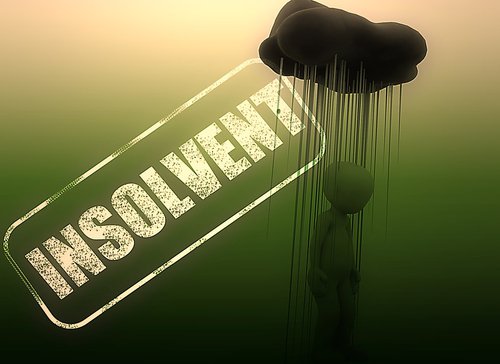
LEARN ABOUT BANKRUPTCY | WHAT IS CHAPTER 13 BANKRUPTCY
 Chapter 13 Bankruptcy & Chapter 7 Bankruptcy
Chapter 13 Bankruptcy & Chapter 7 Bankruptcy
If you are in debt, dealing with collection calls and threats of wage or property garnishments, you understand the stress and anxiety such a situation can cause. Your indebtedness may be through no fault of your own as you may have lost your job or incurred significant medical bills. Bankruptcy is an option available that can help give you a fresh start, eliminate those collection proceedings and get you back on your feet again. However, before filing for bankruptcy, there are some important things that you need to know, such as what is Chapter 7 bankruptcy or what is Chapter 13 bankruptcy. Learn more about the different types of bankruptcy.
What Is Bankruptcy?
Bankruptcy is not something to be taken lightly. It is a federal court process that is designed to help you eliminate debts and, if possible, repay them under the protection of the bankruptcy court. There are two types of bankruptcy for individuals. Chapter 7 is known as liquidation while Chapter 13 is known as reorganization. Once you file bankruptcy, an automatic stay goes into effect. The stay prohibits creditors from taking any further action to collect the debts they are owed, including phone calls, liens or court actions. Not all debts can be eliminated including:
Child Support
Alimony
Tax Debt
Student Loans
There have been cases where a debtor was able to prove that repaying student loans would represent a significant hardship and were able to have them discharged through bankruptcy, but that is not common. In addition, if a creditor can convince the court that a debt should not be discharged, you may be required to pay that debt as well. In all types of bankruptcy, credit counseling is required through an agency approved by the United States Trustee.
What is Chapter 13 Bankruptcy?
You may be asking yourself “So, what is Chapter 13 bankruptcy?” Chapter 13 bankruptcy allows you to reorganize your debts so that your creditors are paid some or all of what you owe them. Most Chapter 13 bankruptcies take three to five years to discharge, depending on how much you owe and your income level. It also allows you to keep your property. The court must approve your repayment plan and you must be able to prove you have enough income to meet the payment obligations. In addition, you cannot have more than $1,149,525 in secured debt or more than $383,175 unsecured debt. Priority debts, such as child support or alimony, will be paid first and the payment plan must include regular payments on secured debts, such as your mortgage or vehicle. If you have fallen behind in those payments, your payment plan may include an amount to bring the account up-to-date over time. After those debts are paid, any disposable income will be used to repay your unsecured debt. You may not pay these debts in full and some you may not pay at all. The court will just require that you show that you can pay something toward the repayment of debts.
What is Chapter 7 Bankruptcy?
For those with limited income or significant debt, the question may arise “What is Chapter 7 bankruptcy?” Chapter 7 bankruptcy liquidates your debt as well as any assets that are not protected. The process takes between four and six months but, once the process is completed, unsecured debts can be completely eliminated with no requirement to repay them. If you have received a bankruptcy discharge within the past six to eight years, depending on the type of bankruptcy filed, you may not be eligible to file for Chapter 7. In addition, if you have high enough income to repay your debts, even partially, you may be required to file under Chapter 13. Most states will allow you to keep some equity in your home if you own it, clothing, household furnishings, Social Security payments, a car and the tools of your trade under Chapter 7 bankruptcy. By filing Chapter 7 bankruptcy, you place everything you own and the debts you owe in the hands of the bankruptcy court. Just before filing, you cannot give away or sell anything you own or pay off debts without the permission of the court, although once you file you can do what you wish with your property. The bankruptcy trustee, who is appointed by the court, will review all assets and liabilities to determine if there is anything of value that can be used to settle your debts. If they find nothing, they will discharge your bankruptcy and your debts will be cancelled. If they find an asset that can be sold or used to pay some of the debt, the trustee may order it sold and the proceeds provided to the creditor. You do have the option of giving the trustee the cash value of the property in exchange for selling it if you are able to do so.
Filing bankruptcy is a step that should not be taken lightly, but by understanding what is Chapter 7 bankruptcy as well as what is Chapter 13 bankruptcy, you can make a more informed decision as to which step is right for you.